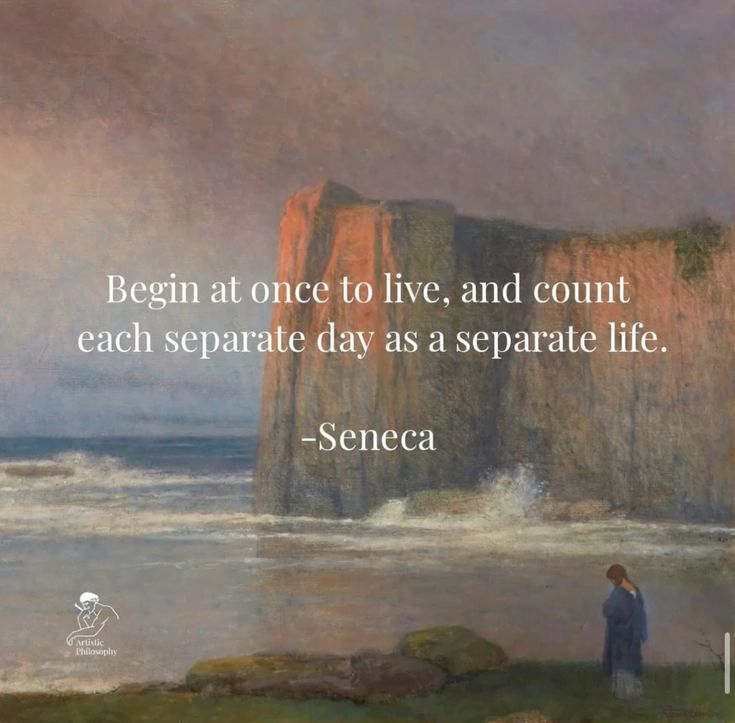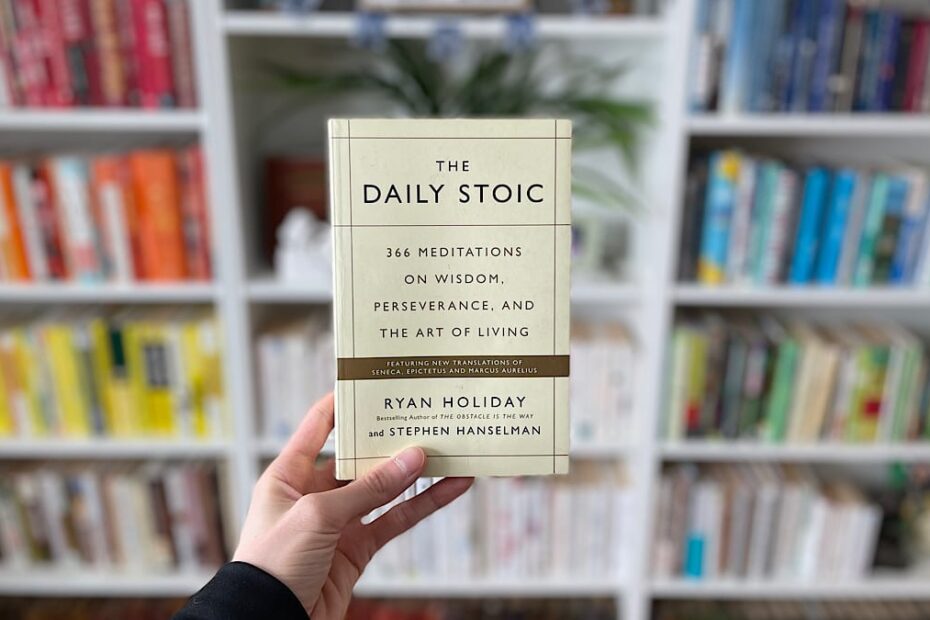“Seneca would say that he actually pitied people who have never experienced challenges. ‘You have passed through life without an opponent,’ he said, ‘No one can ever know what you are capable of, not even you.’ Epictetus said when a challenge is put in front of you, think of yourself as an athlete getting paired with a tough competitor. You want to be Olympic-class? ‘This is going to take some sweat to accomplish,’ he said.”
Ryan Holiday
“In a way, overwork is selfish (no matter how much the workaholic claims they are doing it for other people). Because it deprives them and the world of that later fertility. It causes needless breakdown and injury. As Seneca observed, ‘Constant work gives rise to a certain kind of dullness and feebleness in the rational soul.’ Nobody likes the person who is all business all the time. So go out and live today. Rest from your labor. Come back better for it. Come back improved and sharper for it. That’s the idea.”
Ryan Holiday
”Seneca notes how much time we waste in life. It may well be that we are wasting much of that time and energy thinking about things as unfulfilling and unproductive as being on time. Being punctual is important, yes. But more critical is making time for the things that really matter… and then being on time for those.“
Ryan Holiday
26 Seneca Quotes from The Daily Stoic on Vices, Virtues, and Fulfillment
Excerpt: These Seneca quotes from The Daily Stoic offer timeless wisdom for better living. Wisdom that, when applied, can become a “ruler” for life…
Read More »26 Seneca Quotes from The Daily Stoic on Vices, Virtues, and Fulfillment
The Daily Stoic [Book]
![The Daily Stoic by Ryan Holiday [Book]](https://movemequotes.com/wp-content/uploads/2022/01/daily-stoic.jpeg)
Book Overview: Why have history’s greatest minds—from George Washington to Frederick the Great to Ralph Waldo Emerson, along with today’s top performers from Super Bowl-winning football coaches to CEOs and celebrities—embraced the wisdom of the ancient Stoics? Because they realize that the most valuable wisdom is timeless and that philosophy is for living a better life, not a classroom exercise.
The Daily Stoic offers 366 days of Stoic insights and exercises, featuring all-new translations from the Emperor Marcus Aurelius, the playwright Seneca, or slave-turned-philosopher Epictetus, as well as lesser-known luminaries like Zeno, Cleanthes, and Musonius Rufus. Every day of the year you’ll find one of their pithy, powerful quotations, as well as historical anecdotes, provocative commentary, and a helpful glossary of Greek terms.
By following these teachings over the course of a year (and, indeed, for years to come) you’ll find the serenity, self-knowledge, and resilience you need to live well.
Post(s) Inspired by this Book:
26 Seneca Quotes from The Daily Stoic on Vices, Virtues, and Fulfillment
“To bear trials with a calm mind robs misfortune of its strength and burden.”
Seneca, Hercules Oetaeus, via The Daily Stoic (Page 386)
“In all things we should try to make ourselves be as grateful as possible. For gratitude is a good thing for ourselves, in a manner in which justice, commonly held to belong to others, is not. Gratitude pays itself back in large measure.”
Seneca, Moral Letters, via The Daily Stoic (Page 385)
“It’s not at all that we have too short a time to live, but that we squander a great deal of it. Life is long enough, and it’s given in sufficient measure to do many great things if we spend it well. But when it’s poured down the drain of luxury and neglect, when it’s employed to no good end, we’re finally driven to see that it has passed before we even recognized it passing. And so it is—we don’t receive a short life, we make it so.”
Seneca, On the Brevity of Life, The Daily Stoic (Page 382)
“The mind must be given relaxation—it will rise improved and sharper after a good break. Just as rich fields must not be forced—for they will quickly lose their fertility if never given a break—so constant work on the anvil will fracture the force of the mind. But it regains its powers if it is set free and relaxed for a while. Constant work gives rise to a certain kind of dullness and feebleness in the rational soul.”
Seneca, On Tranquility Of Mind, The Daily Stoic (Page 381)
“Life is long if you know how to use it.”
Seneca, The Daily Stoic (Page 369)
“No person hands out their money to passersby, but to how many do each of us hand out our lives! We’re tight-fisted with property and money, yet think too little of wasting time, the one thing about which we should all be the toughest misers.”
Seneca, The Daily Stoic (Page 365)
“Let us prepare our minds as if we’d come to the very end of life. Let us postpone nothing. Let us balance life’s books each day… The one who puts the finishing touches on their life each day is never short of time.”
Seneca, Moral Letters, via The Daily Stoic (Page 349)
“How much better to heal than seek revenge from injury. Vengeance wastes a lot of time and exposes you to many more injuries than the first that sparked it. Anger always outlasts hurt. Best to take the opposite course. Would anyone think it normal to return a kick to a mule or a bite to a dog?”
Seneca, On Anger, The Daily Stoic (Page 306)
“But the wise person can lose nothing. Such a person has everything stored up for themselves, leaving nothing to Fortune, their own goods are held firm, bound in virtue, which requires nothing from chance, and therefore can’t be either increased or diminished.”
Seneca, via The Daily Stoic (Page 295)
“Show me someone who isn’t a slave! One is a slave to lust, another to greed, another to power, and all are slaves to fear. I could name a former Consul who is a slave to a little old woman, a millionaire who is the slave of the cleaning woman… No servitude is more abject than the self-imposed.”
Seneca, via The Daily Stoic (Page 287)
“Being unexpected adds to the weight of a disaster, and being a surprise has never failed to increase a person’s pain. For that reason, nothing should ever be unexpected by us. Our minds should be sent out in advance to all things and we shouldn’t just consider the normal course of things, but what could actually happen. For is there anything in life that Fortune won’t knock off its high horse if it pleases her?”
Seneca, via The Daily Stoic (Page 286)
“Let us get used to dining out without the crowds, to being a slave to fewer slaves, to getting clothes only for their real purpose, and to living in more modest quarters.”
Seneca, On Tranquility Of Mind, via The Daily Stoic (Page 271)

